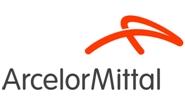Market Segment

April 11, 2015
ArcelorMittal: Learning From Our Past
Written by John Packard
The following article was released by ArcelorMittal this past week to the greater steel community. The article deals with the challenges that ArcelorMittal says are “eerily similar” to those seen in 1998 which resulted in the bankruptcy of several steel mills, including LTV and Bethlehem Steel. Steel Market Update has a separate article normally produced just for our Premium members in tonight’s newsletter dealing with one of the issues raised in the article below – that of lost market share to imported steel. Here is the full content of the ArcelorMittal press release and a link to their new blog called Raw Material:
April 8, 2015 | By Andy Harshaw, president and CEO, ArcelorMittal USA Flat Carbon
A strong U.S. dollar, overcapacity in the global steel industry and low material costs have created the worst market for domestic steel producers since 1998, when imports reached a record high, causing prices and capacity utilization to drop. These conditions resulted in the bankruptcy of several major steel companies, including predecessor companies LTV and Bethlehem Steel.
Today, we are facing an eerily similar situation. In the U.S., 2014 steel demand was relatively flat compared to 2013; partly due to harsh winter conditions in the first half of 2014, but largely due to a weaker global economy which brought excess production from around the world to our shores. This overcapacity in the global steel industry, coupled with a slowdown in emerging markets like China, has resulted in a supply vs. demand imbalance causing the depressed steel prices that we see today. This has set the stage for one of the biggest challenges facing the U.S. steel industry – imports.
Record levels of steel imports in both flat and long product categories are eroding the increase in demand we would normally experience from an improving U.S. economy. Imports are up 70 percent for flat carbon products alone since 2013; quite significant considering flat carbon products account for 93 percent of ArcelorMittal’s USA business. Currently, subsidized steel exports from foreign producers are worth more when sold in the U.S. – gains up to $200 per ton for some countries such as China – which erodes our ability to match our production costs with market prices.
These market challenges have weakened prices to unsustainable levels, placing the domestic steel industry at serious risk. Imports are a disruptive force, consuming typical market demand that would normally be served by domestic steelmakers to improve capacity utilization levels that have hovered in the mid-70s for the past four years, compared to 90 percent before 2008.
As noted in recent news coverage, and supported by comments from leaders of U.S. producers and the United Steelworkers, steel imports have deflated the market value of the steel we produce to unsustainable levels. Yes, a more effective U.S. trade policy is needed to further level the playing field and protect the industry against unfair imports. But we have no assurance of a more favorable government trade policy to help the domestic steel industry anytime soon, and we can’t rely on government policy alone when our costs are higher than the vast majority of our integrated steel industry peers in the United States.
Imports aside, ArcelorMittal’s USA business continues to be weighed down by a variety of costs that remain high despite the low selling price of steel. Many of these costs even put us at competitive disadvantage to our industry peers with USW represented employees. As a result, ArcelorMittal is implementing steps to ensure we have a competitive business model in place. We are focused on running our best assets at world-class production levels and optimizing our capabilities to meet market demand. High value opportunities for advancing in the areas of fixed costs, health and safety, innovation and workforce development are even more significant given the challenges addressed above. But these initiatives alone won’t be enough to guarantee our success.
We must be realistic and rise to the challenges ahead of us or risk the fate experienced by many steel giants that came before us. With the help of our employees and other stakeholders, together we can to stop history from repeating itself.







